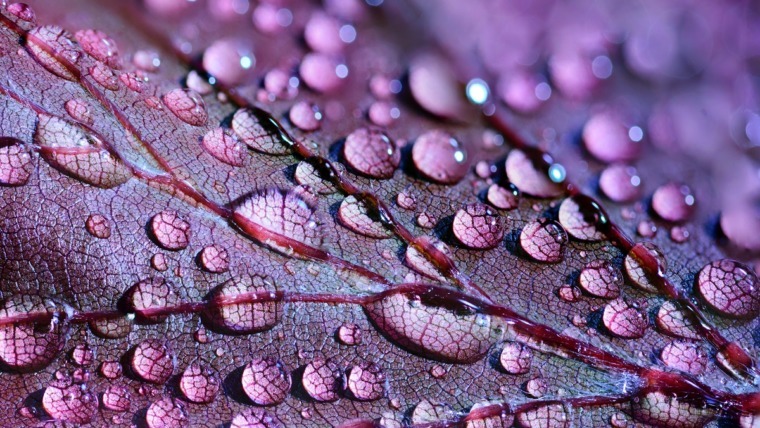
Healthy Skin Through Proper Nutrition
Eat Yourself Beautiful
Written by Adriana Krueger
Diet is an important factor when it comes to beauty. There is no cure for the genetic predisposition for early greying or too thin hair, or very light or sensitive skin. But you can outsmart the genes (which are only responsible for 20 per cent of later wrinkle formation) by eating healthily, not smoking and avoiding too much sun exposure.
One thing is clear: Deficiencies in vitamins, minerals or other nutrients have a major impact on the external appearance. And sometimes the skin, the hair or the fingernails are even the first organs to point to it. Quite apart from that, beauty care, inside and out, is good for every woman.
Care from the inside is more effective than creams. Everything you eat and drink every day has an impact on your skin. The right diet manages to make inflammation in the skin disappear, supply the skin from the inside with important nutrients, delay the formation of wrinkles and eliminate skin impurities. With that, skincare from the inside is more effective than that from the outside. Firstly, many active ingredients in creams cannot cross the skin barrier. From the inside, on the other hand, they can get to the skin cells. Second, skin cells need dozens of nutrients to function properly. In contrast to care from the outside, these act on the entire skin surface.
Nutrients For The Skin
Antioxidants from vegetables and fruits:
The best thing for the skin is a balanced mixed diet with lots of vegetables, fruit, salads and whole-grain products, supplemented by high-quality proteins and enough valuable fatty acids that have an anti-inflammatory effect. It is important that the diet contains many antioxidants. They prevent inflammation and keep the skin young and healthy.
The most important vitamins are beta carotene, A, C, E, B6, B12 and folic acid; an important mineral is a zinc. Proteins and the amino acids derived from them are important for constantly building new skin cells. They act against skin ageing and wrinkling. One needs 1gm of protein per day and per kilogram of body weight, preferably from fish, lean meat or legumes.
The Eight Diet For Dry Skin
Does your skin feel rough, tight and itchy? Then you probably suffer from dry skin. Triggers are often stress, temperature fluctuations and heating air. Diet also affects the moisture content of the skin. Certain foods supply the tissue from within with the appropriate vitamins, minerals and fatty acids. Therefore, if you have dry skin, make sure you eat enough of the following foods:
Water
The skin is normally about 70% water. If you don't drink enough, you'll look old quickly: In order to ensure the supply of vital organs, the body first removes water from the skin when there is a shortage. The body shell becomes slack and wrinkled. Even a single glass of water has a noticeable effect. Within a short time, the skin is better supplied with blood and more oxygen. In the long term, the skin is healthier and fresher. We take in 1.5 litres of water a day through food. Experts also recommend drinking 1 – 2 litres of water a day.
Fish & Seafood
In addition to a lot of omega-3 fatty acids, fish - like all animal foods contains:
Biotin, also known as vitamin H. The vitamin soothes dry and scaly skin, supports regeneration and stimulates the metabolism of the skin. It's crucial for skin cell growth. A front-runner among the suppliers is salmon.
Even vegetarians can easily cover their daily needs since biotin is also contained in plant-based foods: It's found in peanuts, mushrooms, and oatmeal.
Carrots, Capsicums, Apricots & Co
There is a lot of beta-carotene in yellow and orange-coloured vegetables and fruit in particular.
The body converts it into vitamin A, which acts as a natural sunscreen and promotes regeneration of the skin. It also relieves skin dryness.
Oils & Fats
They pad the skin from the inside and protect the tissue from drying out: fatty acids in the cells. They are obtained from oils and fats. Therefore, regularly include cold-pressed vegetable oils in your diet. Olive, flaxseed, or macadamia nut oils work best.
The Right Diet For Oily Skin
Your face shines and often looks oily? Then you probably have oily skin. In addition to the face, the shoulders, décolleté and back are sometimes affected as well. In this case, the sebaceous glands produce too much fat. Possible cause is, for example, a genetic predisposition, hormone fluctuations or malnutrition.
With this skin type, avoid anything that additionally increases sebum production: These include, for example, a fatty diet, cigarettes and alcohol. Furthermore, reduce your sugar intake and avoid dairy products as much as possible. The latter enlarge the sebaceous glands and also promote inflammation.
Diet For Impure Skin & Pimples
If the skin repeatedly tends to impurities and blackheads or if acne is present, this is favoured by a variety of factors. In most cases, a keratinization disorder of the upper layers of the skin is accompanied by an increased sebum production responsible for the pustules. Although recent research shows that diet has only a limited effect on acne, avoid foods that further increase the skin's sebum production.
Therefore, avoid greasy food, processed sugar and dairy products. Also, avoid fast carbohydrates such as white flour products, sugar and sweets on the menu. Make your diet varied and nutritious. An anti-inflammatory diet consists of lots of vegetables, high-quality cold-pressed oils, fatty fish and a little meat. Besides, some spices like turmeric, curry or ginger could have an anti-inflammatory effect.
Diet With Anti-Aging Effects
The ageing process cannot be stopped but slowed down. And not just through external care: You can also support smooth and plump skin from the inside with the right nutrients. Include the following foods, among others:
Oils & Nuts
High-quality vegetable oils and nuts are a true elixir of beauty. Among other things, they are rich in vitamin E, which is also a radical scavenger. Vitamin E protects especially the cell membranes. It delays skin ageing and promotes regeneration of the skin.
Fish & Seafood
Sea fish is one of the best sources of omega-3 fatty acids and may therefore contribute to slower ageing of the skin. Fatty fish such as herring and mackerel also contain larger amounts of skin-protecting vitamin A.
Fruits & Vegetables
In addition to the UV rays of the sun, environmental toxins or stress also cause problems for the skin. They lead to the formation of the notorious "free radicals", highly aggressive oxygen compounds. They attack the cell structures and accelerate ageing processes - also in the skin. Antioxidants bind the aggressive molecules and render them harmless.
What Helps Against Cellulite?
Cellulite, also known as orange peel, is one connective tissue weakness that affects almost only women. To this day it is not known exactly what the cause is. Cellulite occurs mainly on the legs, upper arms and hips and is visible on the skin in the form of dents – in severe cases even as a change in colour. Pregnancy and other hormonal influences promote development. What is visible in cellulite are the fat cells that are - typically female - deposited just under the epidermis. This can happen for both slim and overweight women. Some experts assume that chronic hyperacidity contributes significantly to the development of cellulite, but also too little exercise and various stimulants such as alcohol or nicotine.
How To Prevent Cellulite:
- Eat lots of fruits, vegetables and salads.
- Keep moving.
- Restraint from salt and sugar
- Limit your fat consumption
- Prevent constipation
- Drink enough
- Avoid being overweight
The skin, as the largest human organ, can therefore be optimally supported by your diet. When eating bread, make sure it has a high proportion of whole grains in order to absorb as much fibre, minerals and vitamins as possible.
Healthy fatty acids, such as those found in avocado and walnuts, ensure supple and elastic skin.
You can counteract signs of aging in the skin with the right vitamins: vitamin E, which is contained in sunflower oil, strengthens the connective tissue and vitamin C from kiwis or broccoli keeps our skin firm and healthy.
The antioxidant ingredients in horseradish and dark chocolate protect our skin from harmful environmental influences such as UV radiation.
The zinc contained in lean meat prevents inflammation and accelerates wound healing.
Healthy Skin Needs All-Round Care
In addition to a balanced diet, a healthy complexion also requires self-care in other areas. This includes:
Drink Plenty Of Water
Beauty comes from within, and because we're made up of 70% water, staying hydrated is essential. It is recommended to drink at least 1-2 litres of water daily. If you do a lot of sport or if it is very hot, even more. Water keeps the skin taut and transports nutrients. If pure water is too boring for you, you can also use infused water or teas. Sugary drinks such as cola or lemonade, on the other hand, are real calorie traps and cannot achieve the same glow effect as plain water. Studies also show that if you keep your body hydrated, you are happier! There is no better make-up than that of a natural and happy appearance. So raise your cups..... let's drink to our beauty!
Beauty Sleep Of At Least 8 Hours
Nothing works without coffee in the morning and the circles under your eyes are dark? It goes without saying that this is not good for skin and hair. The right amount of sleep is important so that your body can regenerate overnight and your skin and hair shine the next day.
Inflammation is inhibited and food cravings are minimized. Lack of sleep puts stress on your body. A good night's sleep is the key to feeling and looking fit!
Exercise
If you want to look and feel good, you should do exercise. And that just doesn't mean a positive influence on our body weight. Happy hormones – endorphins – are also released. The metabolism is boosted and blood circulation is improved. The connective tissue is tightened and cellulite is reduced, the skin appears firmer. Sweat also ensures that pores open and bacteria are flushed out. In other words: fewer pimples and a clearer complexion.
Eat Yourself Beautiful Eat Yourself Beautiful Eat Yourself Beautiful Eat Yourself Beautiful Eat Yourself Beautiful



